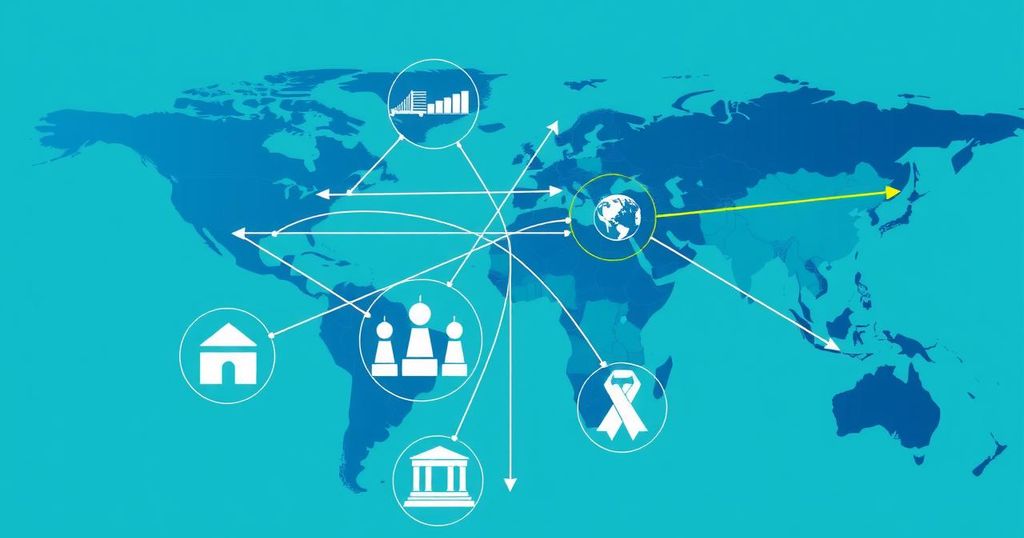The UAE has signed CEPA agreements with 20 countries, with six currently operational. Aiming for a total of 26 agreements, the UAE anticipates a 2.6% economic boost by 2030. Record non-oil trade figures highlight the effectiveness of these partnerships, which simplify tariffs and procedures. Targeted trade volumes with partner nations reflect ambitious growth projections for the UAE economy.
The UAE has signed Comprehensive Economic Partnership Agreements (CEPA) with 20 countries, with the latest agreement with the Central African Republic formalized recently. Currently, six CEPA deals—those with India, Indonesia, Israel, Turkey, Cambodia, and Georgia—are operational and generating benefits. Meanwhile, agreements with 14 additional countries, including Jordan, Australia, and South Korea, await ratification.
The UAE aims to establish 26 CEPA agreements to enhance global trade relations, increase investments, and diversify its economy. These CEPA agreements are projected to contribute approximately 2.6% growth to the UAE’s economy by 2030. Specifically, these agreements focus on tariff reductions and simplified trade procedures, fostering growth in UAE’s trade since 2022.
In 2024, the UAE’s non-oil foreign trade reached a record Dh3 trillion ($816.7 billion), a 14.6% increase year-on-year. Notably, CEPA agreements have led to a Dh135 billion rise in non-oil trade with partner nations, with a 42% year-on-year increase. Sheikh Mohammed bin Rashid noted that the UAE is on track to achieve its goal of reaching Dh4 trillion in annual foreign trade by 2031, reaching 75% of this target by the end of 2024.
The UAE’s initial CEPA agreement was signed with India in February 2022, leading to substantial trade growth. The UAE also signed agreements with Israel, Indonesia, and Turkey, each with ambitious trade growth targets. For instance, the UAE-Israel CEPA aims to boost trade to $10 billion by 2030, a significant increase from $1.3 billion in 2021. Additionally, the UAE-Indonesia CEPA hopes to elevate trade with Jakarta to $10 billion by 2027.
The CEPA with Turkey is set to foster trade worth $40 billion by 2028, while the UAE-Cambodia agreement targets $1 billion by 2025. The UAE-Cambodia CEPA, effective January 2023, seeks to enhance market access and support for small and medium enterprises in both countries. The recent UAE-Georgia CEPA aims to triple trade volume between the two nations to $1.5 billion within five years, adding significant GDP contributions to both countries by 2031.
The UAE’s establishment of Comprehensive Economic Partnership Agreements with 20 countries signifies a strategic move to enhance global trade and diversify its economy. With ongoing efforts to ratify more CEPA deals, the UAE anticipates strong economic growth, bolstered by significant trade targets, increased foreign investments, and a focus on simplifying trade processes. These partnerships are expected to enhance economic ties and deliver substantial benefits to the UAE by 2030.
Original Source: www.thenationalnews.com






